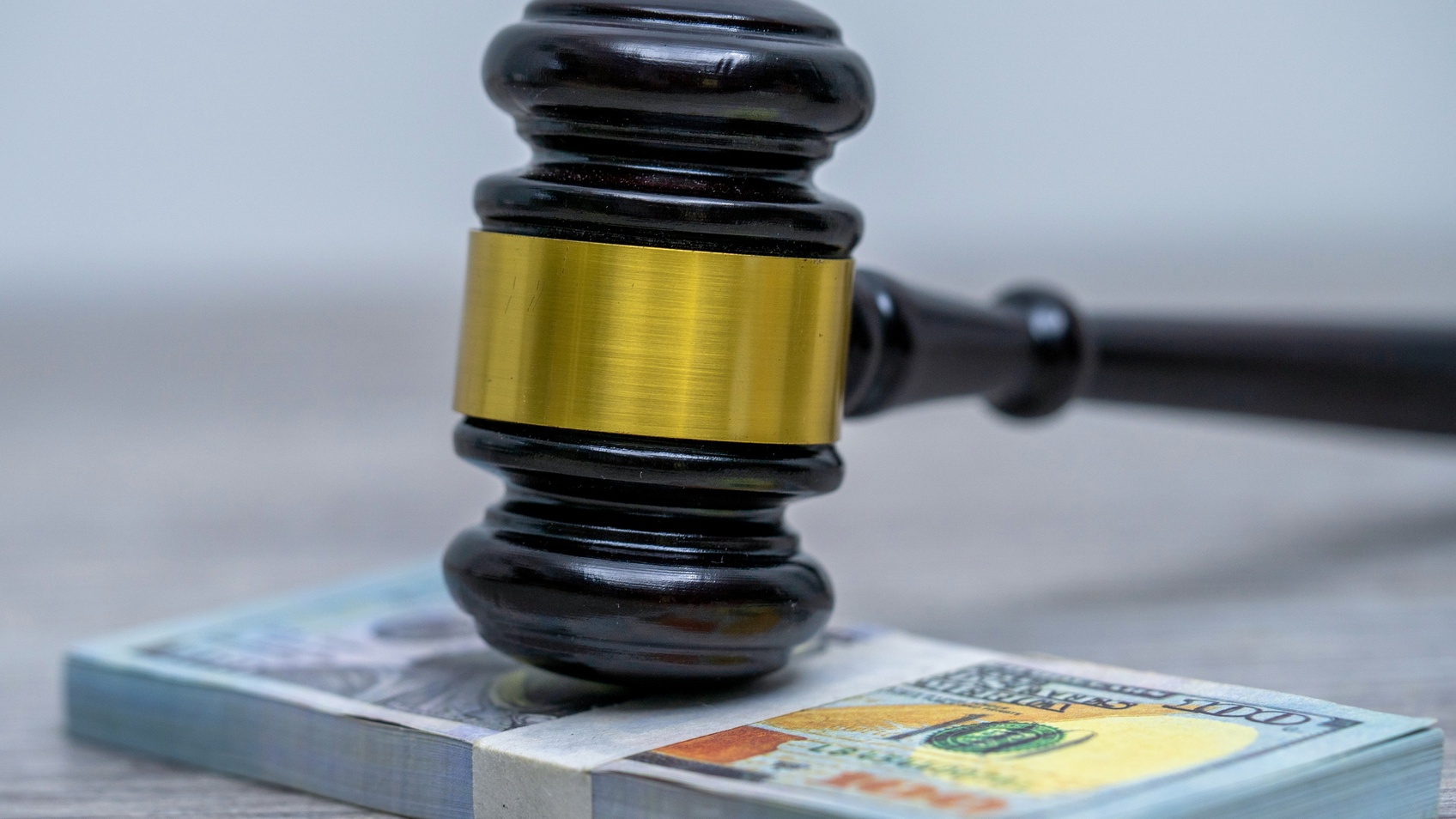Activists, lawmakers and lawyers are speaking out about the case of 64-year-old Preston Chaney, who died of COVID-19 in a Harris County jail in August simply because he couldn’t afford to pay the $100 bail needed to set him free.
Alec Karakatsanis, the founder and executive director of Civil Rights Corps, wrote on Twitter that his team filed a federal lawsuit criticizing Texas courts for effectively holding people in crowded jails because they were too poor to afford bail.
COVID-19 has run rampant in jails and prisons across the country but little has been done to help protect the incarcerated or limit exposure to the virus for the jail population.
Chaney was arrested because he allegedly stole meat and lawn equipment from a person's garage last April, according to the Texas Tribune. His bail was set at $1,000, but he could not afford to pay the 10 percent for release, and he was instead held for three months inside of a crowded prison, where he contracted COVID-19.
Karakatsanis wrote that Chaney had diabetes, heart disease, and liver disease, and succumbed to the virus largely because he had been forgotten in the jail.
"There is no room for social distancing in the crowded jail. Preston Chaney couldn't protect himself. He had difficulty breathing and was taken to the hospital where he was intubated and died struggling for oxygen. The system for defending poor people is horrific. A few lawyers make hundreds of thousands of dollars taking huge numbers of cases but doing little work. Many of them do not even meet their clients until pleading them guilty after months in jail," Karakatsanis wrote on Twitter.
"As the jail swelled to almost 9,000 human beings it became the site of an outbreak. But the district attorney and judges declined to even hold individual hearings to look into cases like Preston Chaney's. Thousands of people were left to get sick because they are poor," Karakatsanis added, noting that many of those held with onerous bails are under the age of 18.
Karakatsanis also highlighted the way lawyers take advantage of the system.
"Our team's filing in federal court in our case against the bail system noted that Chaney's lawyer billed for *two hours* of work on his case in the three and a half months he was in jail before he died. The lawyer even tried to bill for work on his case *two days after Chaney died,*" he wrote.
Our team's filing in federal court in our case against the bail system noted that Chaney's lawyer billed for *two hours* of work on his case in the 3.5 months he was in jail before he died. The lawyer even tried to bill for work on his case *two days after Chaney died.* (5) pic.twitter.com/JsXpCXzHSh
— Alec Karakatsanis (@equalityAlec) February 6, 2021
Rep. Ayanna Pressley and many others have written about the unfairness of the bail and justice system, and the Texas Tribune noted that it was even at odds with the idea of "justice." The Texas Tribune report put Chaney's story against that of Alex Guajardo, a man who was let out on a personal, no-cost bond after he assaulted his pregnant wife. He was arrested two days later for allegedly killing his wife.
A man died from COVID in a Houston jail cell last week because he couldn't afford the $100 bail. He died for the crime of being poor, awaiting trial for the alleged crime of stealing food.
His name was Preston Chaney.
Mass incarceration is a public health crisis.
— Ayanna Pressley (@AyannaPressley) February 9, 2021
The stories highlighted the arbitrary nature of how bails are set, and advocates have said there are thousands of people like Chaney being held in jail for minor charges, while they await hearings on their cases.
Many are saddled with either overworked or uninterested lawyers eager to simply have them plead guilty and move on to the next case, according to the Texas Tribune.
Chaney was held in jail because of an executive order released by Texas Gov. Greg Abbott, which said anyone with prior arrests must be held on bail.
Lawyers and advocates for incarcerated people have said judges and prosecutors need to hold more hearings and move faster to get people in front of judges so they do not spend months languishing in jail, according to the Houston Chronicle.
“They should hold hearings or release these people,” civil rights lawyer Elizabeth Rossi told the newspaper.
Dane Schiller, the spokesman for the district attorney’s office, defended the actions of prosecutors, offloading blame onto judges.
“Prosecutors don’t have the legal authority to order that anyone be held or released from jail, as such decisions are entirely up to judges; prosecutors can merely make recommendations, as can defense lawyers,” Schiller said.
Houston Police Chief Art Acevedo tweeted about the story, noting that he would look into it.
"We don’t run any jails, but will look into this next week. No one is supposed to be in jail for failing to pay a $100 bond on a non-violent offense. I will report back what I find," Acevedo wrote.
But Karakatsanis and others said Chaney's case was emblematic of a larger issue, where people sit in jails for months, while lawyers rack up large fees for doing little work.
He tweeted about judges who were detaining people based solely on an inability to pay bail.
There are 5,297 human beings trapped inside the Houston jail solely because their families don't have cash to bail them out. Here is a list of the judges who have jailed them for their poverty. Structural violence. pic.twitter.com/HIwC2OU1sl
— Alec Karakatsanis (@equalityAlec) February 9, 2021
"There are 5,297 human beings trapped inside the Houston jail solely because their families don't have cash to bail them out. Here is a list of the judges who have jailed them for their poverty. Structural violence," he wrote on Twitter.
